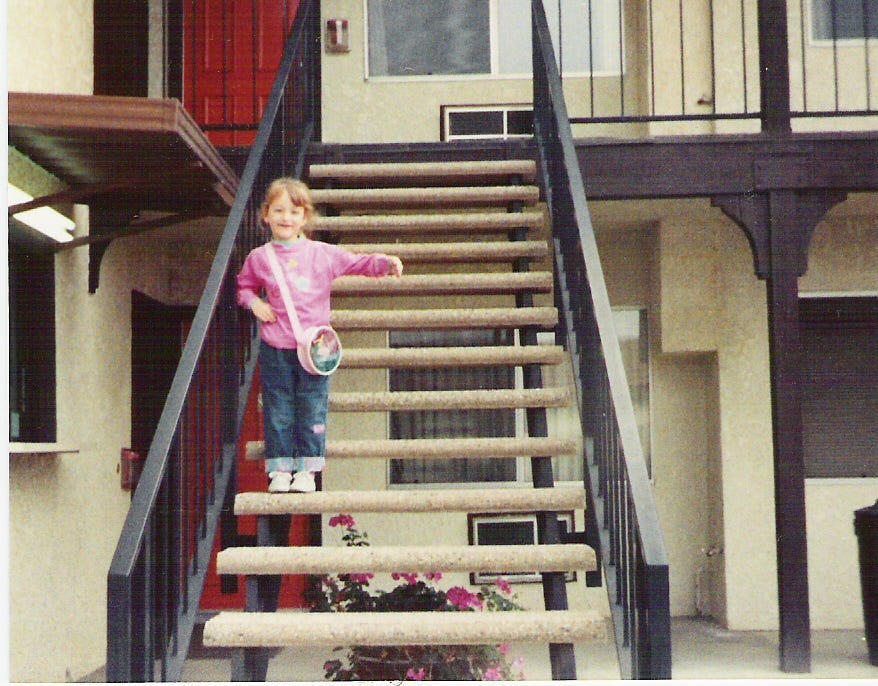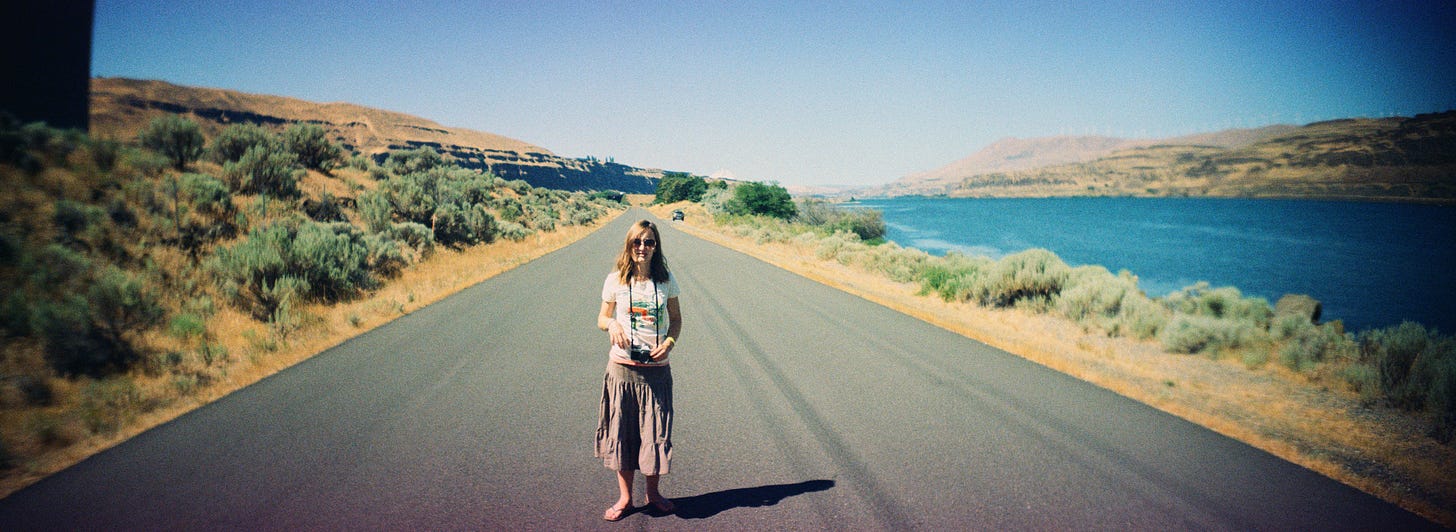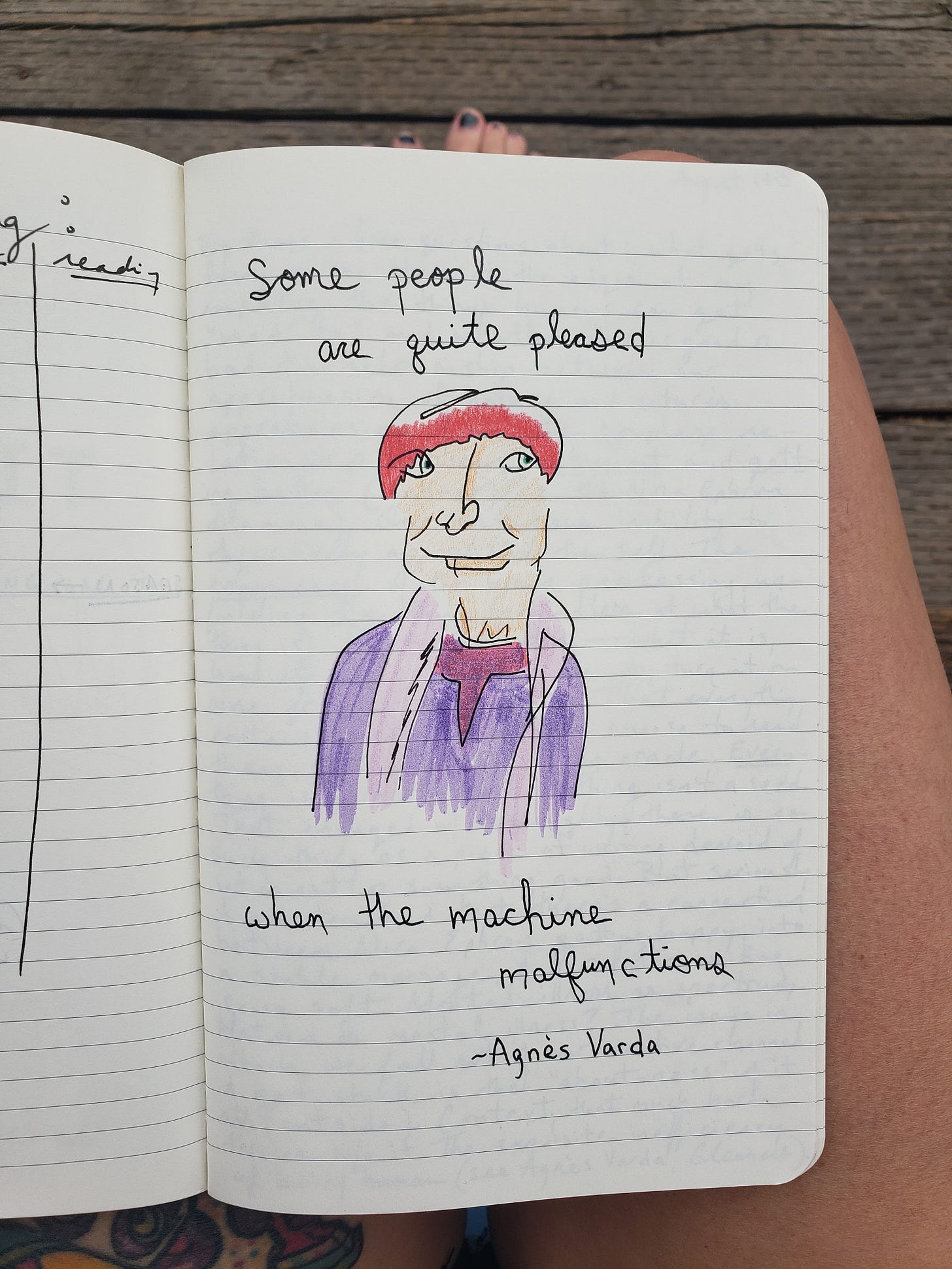For the Birds: How do we talk about the thing we're inside of?
Struggling toward an Artist's Statement (Part one)
Thanks for being here! I’m on a mission to serve others through writing & mentorship, and I’m doing this work as a self-employed, neurodivergent human. Your support has a bigger impact on my life than you likely know. Please know it! When you can, thank you for reading closely, sharing widely, and upgrading to a paid subscription.
Author’s Note: Today’s issue is the beginning of an ongoing series. You can read part two here and part three here; depending on when you’re reading this, there may be more parts.
I’ve been thinking a lot lately about this thing that sometimes happens where we’re asked to say something about our writing or our art. It happens during small talk, or it happens because of applications we’re filling out or contests we’re entering, or it happens, maybe, in response to a private search for clarity.
Most of the time, the task drives me completely bananas, and I’d like to help you understand my feelings here by quoting the incomparable Joy Williams:
“Anything a writer says about their work is outside the work, a stranger to it. It’s a different language. It’s almost an enemy of the work. Whatever transformational transmission of weird beauty and consultation the work might possess can be utterly destroyed by the writer talking about it on the side.”
Utterly destroyed. She is not joking around, friends! Can talking about our work be so dangerous that it IMPEDES our work? Like, crush it / maim it / put it to bed with the fishes kind of impediment? Even when the aboutness lives benignly on the side, “on the side” still feels like sticky territory to me, a place where harmful distractions threaten to take my attention away from the work itself, the very real spirit of the thing.
Another layer of torture comes from the fact that, in many of these instances, we’re trying to account for or demonstrate the value or intrigue of our work. (So that they’ll, ahem, let us into Hedgebrook, or pay for us to write at Zion for a month, or finally hand over an Oregon Literary Fellowship k please thank you I’m ready for it, Universe).
But the value and intrigue of our work is the work itself. Why summarize it? Or rather: how can we? The good student, productive citizen, and rational hopeful in me wants to roll her eyes and then begrudgingly, obediently, write the summary. But the artist would rather lay her head softly on the dirt.
This work of talking about the thing we’re magically, fluidly, mysteriously deep inside of is a unique skill in and of itself, a meeting of synthesis and translation. (And it reminds me of something a professor in grad school once admitted to me: the only thing the GRE is really testing you on, he said, is how good you are at taking the GRE. Oof.)
Is it helpful to be able to talk about our work, about its core, the magma & muscles & blood jet of it all? Yes—though this also depends on your writerly goals, which must must must be aimed at through the clear lens of your personal values.
Beyond that, does it support the evolution of our artistry to write toward our own uniquely crafted Artist’s Statement? Of course! And yet…it’s something I’ll never not grapple with or push back against, even as I’m doing it; it incites a crunchy feeling in my stomach, like I’m responsible for describing scent when ALL I wanna do is push a lilac under every person’s nose. The ordeal starts to feel a little too much like a verification process, like I’m drumming up proof at the expense of experience.
And proof feels so spiritually misaligned with the reasons for making art in the first place, don’t you think? Art is Discovery. Art is Experiment. Art is Evolution. We’re talking, after all, about a dynamic, living thing, more creature than encyclopedia. You can take a photo of it and learn its name, but that isn’t the same thing as sharing intimacy with it.
Maybe that’s the source of my grief: the lack of intimacy in so many of these application requirements, and the way my own experience of writing and art-making is such an inherently intimate one.
This is good data—a good thing to know about my work; a thing I would not know had I not struggled and flailed for a little while here on the page…
As I throw more hats in more rings, and maintain a sense of curiosity about what my evolution as a writer out in the shared world looks like, I do find myself taking an occasional step backwards in order to look over at what I’m doing from afar. But is there a way to talk about our work without having to move away from it?
Maybe it’s a little like looking at old pictures of yourself. Some tenderness here, some humor over there; obliviousness slowly replaced with obviousness, and the relief / regret that ensues. And there, on the other side of all these big, impossible feelings, is you. Real you! You’re the one holding the photograph, but you’re also the one in the photograph, and you’re trying to apprehend the full, complex experience of both, even as they are, on some level, not a both, but a one. How? Oh writing, you see me, but you can’t explain me. Actually, that might be the better deal…
How to summarize a calling, a sense of purpose, that contains mystery and spiritual oxygen and more than a single main point—hundreds of them, all looping and tangential? How to summarize a life that resists abridging? You can’t make sense of the full thing when so much of the value and meaning resides in the non-sense parts of it, too.
So how do we talk about the work we’re deep inside of?
The only way I can answer this question with integrity is by trying to talk about the work I’m deep inside of.
I’m in the midst of some long-term grappling with this one, friends. In the meantime, below is a short attempt—one of many. In the weeks and months to come, I’ll be sharing more. May they build into a compendium of inspiration, and provide you, beloved readers, with illumination on the path toward your own articulated questions and evolving artistic answers.
Big things I have questions about
(aka Sarah tries to say something about what she’s inside of—first attempt)
What gets funny or too stern at the edges of my empathy. The things humans can get “used to,” and whether or when this is good or bad. The relationship between our apprehension of nature and nature’s apprehension of us. The complex relationship between making art and getting better (well-er) (i.e. the Nora Ephron dilemma). Our torturous inability to objectively apprehend the self. The experiences of the brain processing, unfolding, apprehending the thing (any thing). Poetic attention—what it is, how it feels, how we use it, turn it on more frequently throughout life. That everything contains messages if you choose to read them, that everything is an oracle. Everything is a relationship. Nothing isn’t a seed. That, engaged with thoroughly, there is no such thing as a piece of writing devoid of interest or value. But seriously, I am terrified that there’s a connection between Nora Ephron getting happy, entering a stable marriage, and her writing going soft. Mental health / illness as spectrum. Hatred as mental illness? The ways in which we fall outside of our creative channel & get stuck in the “about-ness” of it all. Context; that most harm thrives without it. The exquisite inefficiency of being human (see Agnès Varda, The Gleaners and I). What is personhood made of?










Your clear channel is a pellucid stream. The light on the water changes and sometimes, perhaps during a storm, it doesn't appear to be clear, yet it is. The mystery and magical invertebrates, true signs of pristine waters are always there, clinging to rocks, unseen. A naturalist doesn't become less of one, when that person spends less time in the natural world or changes a viewpoint based on experience or new science. Writing is your core, and goes even deeper, then like a sea mammal, rises toward the surface for a gulp of air, and submerges again.
Re: Nora Ephron's writing going soft...
This is from the Kay Ryan Art of Poetry interview:
"It made sense to me to be as whole and well as I could be, and as happy. I wanted to see what a fortunate life would produce."
(Here's a link: http://intelart.blogspot.com/2016/09/kay-ryan-art-of-poetry.html)